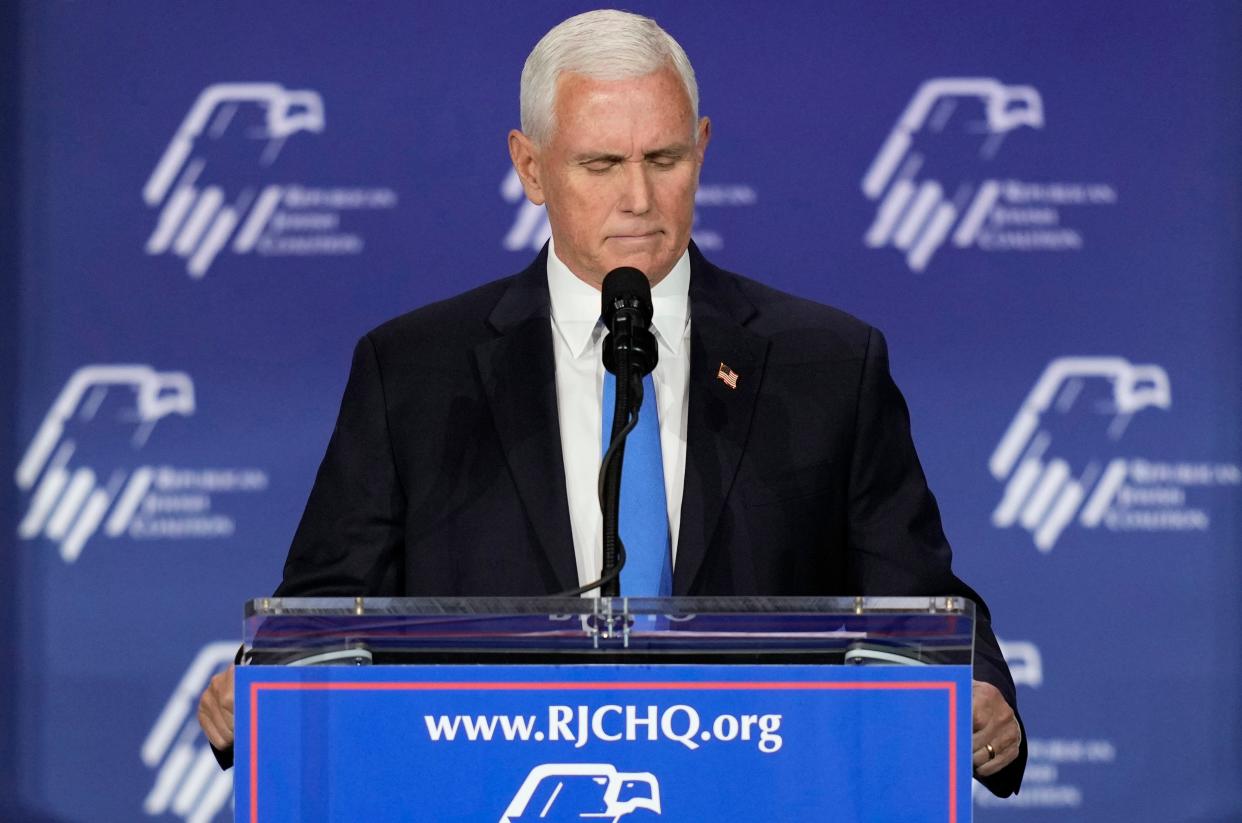Civics Project explainer: Why do presidential candidates drop out even before a vote?

Q. Why do presidential candidates drop out before anyone has voted?
A. While they rarely say it is about the money, it is usually about the money. Presidential Campaigns are expensive. Money usually follows the perception of electability. Essentially, the more people who think you are going to win, the more people will donate to your campaign. Americans do not like to waste money on a losing candidate.
This process of showing strength by raising large amounts of money is often referred to by political scientists as the money primary. Candidates who can raise money are seen as the ones with a legitimate chance of winning. You will often see candidates trumpeting strong fund-raising numbers to media outlets. They will also emphasize how many small donors they have gotten as a sign of widespread appeal. Small donors are also a good sign for future fundraising as they can be asked again since they have not reached the federal limits.
More of the Civics Project: A Civics Project explainer: Why Iowa carries outsized importance in US elections.
Even more importantly, when you are seen as a strong candidate with many small donors, the large donor class will fund outside organizations which will support you and your candidacy, though it is supposed to be without any coordination. These outside groups which are associated with the candidates can be significant players in the process by purchasing media, making advertisements, and organizing events. But, these things are expensive and need to be well funded, making large donors very important.
While things can build in a positive direction, the reverse is true, as well. Once a candidate is seen as not viable, the campaign can spiral quickly. Candidates burn through campaign money quickly, and when the donations slow or largely end, the campaign can come to an abrupt stop with layoffs and the cancellation of advertisement buys. Even the basics of campaigning require money. Candidate travel is not inexpensive and if you are bringing a team of people around the country, you can spend money very quickly, even if the candidate is trying to keep expenses manageable.
More Civics Project: The Civics Project column: Could former President Barack Obama run for vice president?
In addition, marginal candidates are excluded from the debates, so they cannot use that platform to appeal to voters and raise money. If a candidate does not meet the amount of money, donors or polling level to make the debate stage, the end is likely near, as the attention needed to get out a winning message is likely never going to happen. Though, it’s worth noting that the money doesn’t guarantee a win. On occasion campaigns can be well-funded and still fail. Former Florida Governor Jeb Bush started out with substantial funds as the front-runner for the Republican nomination in 2016, but still lost to Donald Trump. Money gets you in the contest but having more money doesn’t mean you win.
Even a candidate seen as no longer viable can with the right momentum, reverse the perception and win. In autumn of 2008, Arizona Republican Senator John McCain was running out of money and was seen as almost out of the race. There were stories of him cutting back staff, carrying his own luggage and forced to have volunteers drive him to events. However, a surprising showing in New Hampshire rebooted his campaign and he went on to win the nomination. It’s rare, but sometimes holding on until the people vote in is worth the wait.

Kevin Wagner is a noted constitutional scholar and political science professor at Florida Atlantic University. The answers provided do not necessarily represent the views of the university. If you have a question about how American government and politics work, email him at kwagne15@fau.edu or reach him on Twitter @kevinwagnerphd
This article originally appeared on Palm Beach Post: Civics explainer: Why presidential candidates drop out before votes

